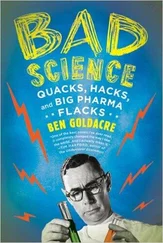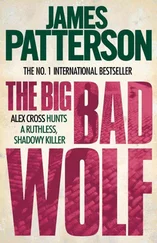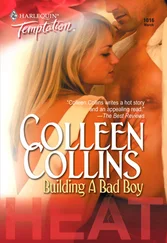This was an image he played in his mind, on loop, as if it were pornography. He knew he was imagining the classic divorced man, the deadbeat dad. He knew it should bring him some sort of guilt or grief or horror, but all it brought him was relief. When he saw himself on the couch, getting fat, the cheese down the front of his button-down, the dingy walls where someone else’s picture hooks still hung, the television on while he slept in his work clothes, beer tipping invisible into the deep shag, it was like a little window into Eden. He could hear the angels sing.
*
Of course, everyone wanted to know why Spencer was leaving. Was there someone else? Was he going broke? Had he lost his job months back? Had he been pretending to go to work all this time while he was really going to a bar all day to drink? Was it pain pills? Was he secretly dying? Was he finally coming out of the closet? The answer was always the same: No, no, no, no, no, no, no.
“Men,” his boss informed him, “never leave unless they have a plan. And by plan I mean woman .” But Spencer didn’t have a woman. His lover was emptiness. He had nothing outside of his marriage. He had nothing inside of himself. It was as if he’d been erased, hosed down. He knew he loved Cassandra and Melody and Levi, but he couldn’t feel it. He knew nothing other than that feeling nothing was wrong. Spencer didn’t know how to explain why he was leaving until one day, in counseling, with Cassandra sitting beside him dabbing at her swollen eyes, it came to him. “It’s just,” he said, then paused, momentarily exhilarated that it had finally dawned on him. “It’s just that life isn’t what I thought it would be.”
There was a brief moment of silence during which Spencer heard a woman laugh, far off, outside in the parking lot. Then Cassandra lurched from the couch, as if someone had stabbed her in the back. She nearly turned over the coffee table that held the Kleenex, the dish of Wint O Green mints, the grimy communal stress ball.
“Well,” she said, trembling. “I’ve officially heard it all.” Then she grabbed her purse and her coat and stormed out of the office in a puff of cold air that felt like a flash of death but dissipated soon enough. The therapist waited until she was gone, then he blew air out of his nose in a bullish way.
“Spencer,” Dr. Darvin said. “Tell me some things that have turned out the way you expected.”
Queso from Durango’s , Spencer thought. Bonanza Gold Diggers . But Spencer did not say those things aloud.
“Life has a lot of moving parts,” the doctor said. “But if we start from love instead of obligation, those parts can be a lot easier to manage.”
That made Spencer think of the year he’d played baseball. He’d been ten. He liked the coach. He liked the teammates. He even liked the uniform, the feel of the ball tossed up and down in his glove, the sound of the bat when it made a good connection. But everything put together had seemed a joke. All the parts, when forced to interact, seemed absurd. What was the point, this running from here to there? This line and that line? It was a fabrication. A farce. An orchestrated circus that caused grown men to turn crimson, women to scream nose-to-nose with other women, children to doubt their self-worth. And, one particular May Saturday, after a missed triple, it even caused one man, an opposing coach with a handlebar mustache, to drop to his knees and clutch his heart. At first it seemed a show, a dramatic reaction. Some of Spencer’s teammates even pointed and jeered. But when the man keeled over on his forehead in the orange dirt and proceeded to foam at the mouth, it became clear something dire had come to pass. All in the name of something made-up and make-believe.
An ambulance eventually came to cart the coach off, but by the time it arrived, bouncing over the grass, he was purple. Spencer watched the EMTs bend over him, their green latex gloves perched on their hips like exotic birds. He watched them lift the man’s limp body onto a stretcher. He watched the ambulance retreat. People stood in the warm sun and murmured. Spencer squinted into the sky until he felt nothing. Then he took off his glove and took off his hat and went to retrieve his bat, until his coach grabbed his elbow and frowned. “The game goes on, Spencer,” he said. “It always goes on.” And it did. With the same, if not intensified, passion as before.
Spencer wondered if that episode was when his heart had gone blank, watching that opposing coach foam his way to indigo. Sure, Spencer had mustered enough emotion in his later years to court Cassandra and propose to Cassandra the way a practical, math-minded actuary might court and propose, but when things had gotten tough, when the family pandemonium had begun, he’d reverted to squinting into the sky and erasing himself. When his children presented him with frustrating scenarios, when Cassandra laid out her to-do lists on the dining room table, one-two-three-four-five, Spencer could feel apathy coming on like a trance, like a squeegee down a plate glass window. That was when he went through the motions of pretending to care, of pretending to be interested, when what he really wondered was what would life be like if no one did anything. If everyone just got on the floor and curled up together and only rose to use the toilet and to make instant oatmeal. Spencer thought for a moment about voicing this to Dr. Darvin, but instead, he just sat there on the gray couch and thought of the sofa back at the two-story. What had those people on the fabric been doing? He’d stared at them for years while Cassandra sat by his side, in the early years with her laugh and wine, in more recent years with her ballpoint and lists, but now he couldn’t recall what those people printed all over the camelback had been up to. Fishing, maybe. Threshing wheat. Spencer couldn’t recall and it hurt to try. So, he stood up, helped himself to some Wint O Greens, put on his hat, and tipped it.
*
Spencer thought that going back to the house to say goodbye and pack up his things would be hard on the kids. He felt like it would be a big event, a dramatic exit. So he left the clothes and the kids and Cassandra the same way he left cocktail parties—without saying so long or thank you . He just went to work one morning and didn’t go back home when he was done. On the way to his new apartment, he bought a bar of Zest and a cheap yellow toothbrush and he left everything else back at the two-story. He figured it was thoughtful of him in a way. Cassandra and the kids could slowly get used to him not being there, and then when they got used to that, maybe toward summer, they could go through his closet and empty it out and get used to his clothes not being there either. What else had he really left behind besides some oxfords and khakis? His uncle’s war helmet, he supposed. Maybe a set of damp encyclopedias in the basement. A box of Wheat Thins. (He was the only one who ate Wheat Thins.) It wasn’t like it was hard to start over. He just needed some basics. Some socks and paper plates. A container of Coffee Mate. Batteries for the remote.
*
Spencer’s friends thought he was crazy. They told him as much. Cassandra looked good for her age. She wasn’t more than about 130, 135 in the winter. Once or twice a month, she could be a real pill, a borderline bitch, but the rest of the time, she was a doll, sometimes a saint. She had good teeth, a genuine laugh, a way of anticipating the needs of the kids. She still gave it up every week or so, usually in a tired sort of way, but she acquiesced nonetheless. The kids weren’t terrors. They had manners enough, a modicum of charm. Regardless, Spencer wanted none of it. He wanted the queso and chips. He wanted the Pearson brothers on Channel 241 running Klondike gravel through their sluice box. He wanted no talking, no folded laundry in the front hall, no obligation to explain the rules of badminton, Clue, the fox-trot, geometry. He saw himself never having to show someone how to ride a ten-speed, how to wind up a rubber hose, how to measure twice, cut once. Never again would he want to put his fist through a wall watching Levi tie his shoes by clumping his shoelaces up in a little pile. Never again would he experience the agony of seeing that nightly lump of toothpaste in Melody’s sink. Did she just let it fall there off her toothbrush? Did she spit it out whole? How much had he spent on these lumps? Spencer knew it was wrong. There were people out there who had kids dying. Kids hooked up to tubes and bags and pumps. But still: a scooter left behind the wheel of his Camry three or four times a week. It was just one thing after another.
Читать дальше












